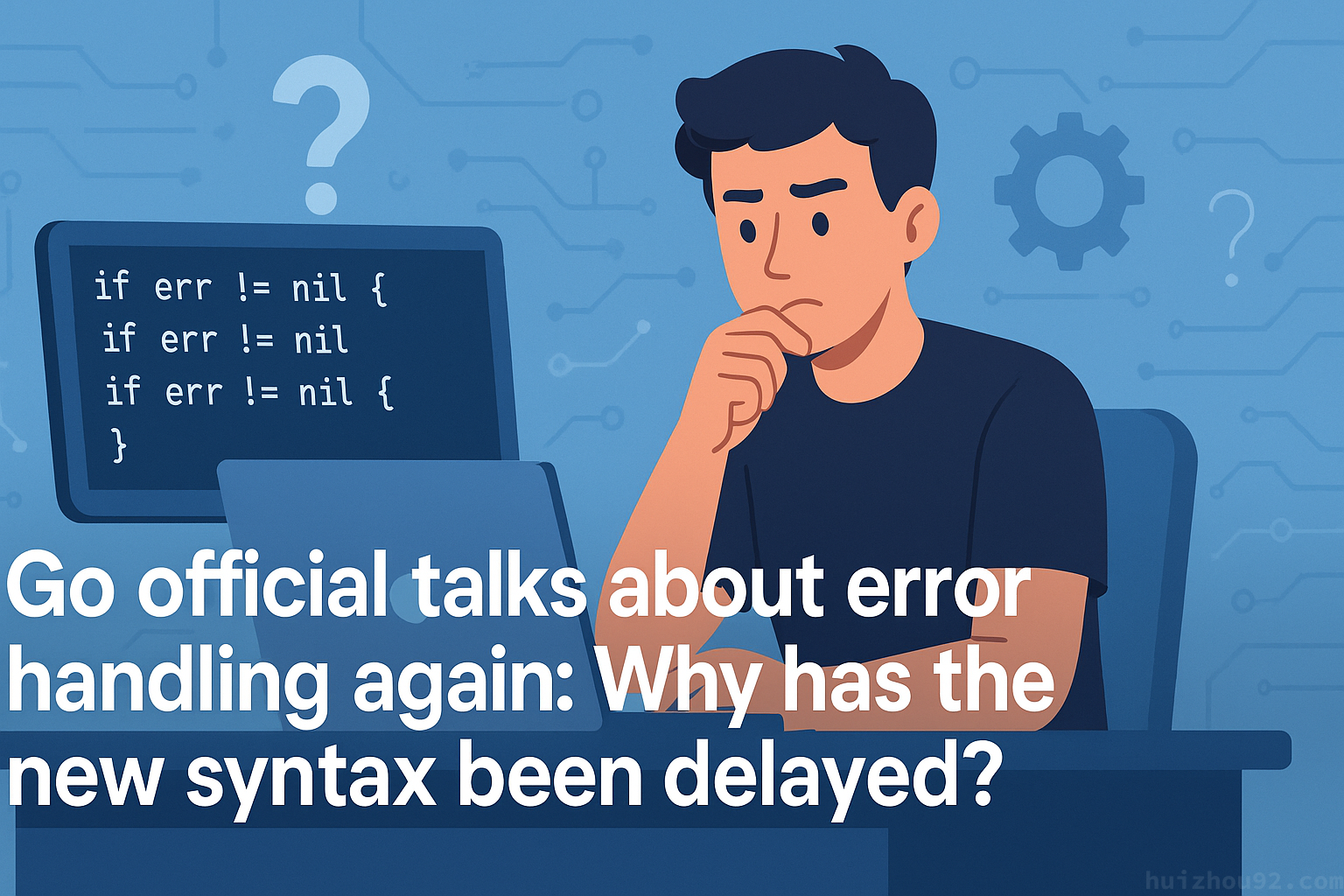Go Officials Revisit Error Handling — Why the New Syntax Is Still Stuck
Recently, the official Go blog published a post titled On | No syntactic support for error handling. Contrary to the community’s anticipation for a breakthrough in syntax, the article took a step back—revisiting Go’s long and rocky history of failed attempts to simplify error handling.
So, why did the Go team choose to publish this now?
Why Does the Go Team Keep Revisiting Error Handling?
Since its inception, Go has been celebrated for its simplicity and clarity. But one area has always stood out as a sore spot: error handling is verbose and repetitive.
Here’s the familiar Go pattern we’ve all seen:
|
|
The repeated if err != nil blocks often feel mechanical and boilerplate. Over the years, the Go team has made multiple attempts to design a cleaner syntax—but each one has failed to gain enough traction for implementation.
Failed Attempts That Once Held Promise
Here are a few notable proposals that stirred hope but never made it into the language:
-
2018:
checkandhandle
Introduced new keywords to reduce error handling verbosity, but were eventually rejected due to concerns about added complexity. -
2019:
try
Proposed a built-intry()function to handle errors more concisely. The community pushed back, citing it as “too implicit” and against Go’s design philosophy. -
2024: The
?Operator Inspired by Rust
Ian Lance Taylor suggested borrowing Rust’s?operator to reduce boilerplate (proposal #71203). Once again, the community responded with strong opposition.
I also wrote a blog post about it.
Each failed proposal reveals more than just technical challenges. They reflect a deep-rooted cultural norm in the Go community:
“Clarity is better than cleverness.”
What’s The Real Message Behind This Blog Post?
If you read between the lines, you’ll see this blog isn’t just a retrospective—it’s a strategic response to the growing noise in the community:
“Do we need new syntax for error handling?”
The post sends a subtle but critical signal:
The question isn’t just about syntax. It’s about the philosophy of the language itself.
Go’s team isn’t aiming to push a new solution just yet. Instead, they want to steer the community back to first principles—asking:
What kind of language do we truly want Go to be?
“Explicit Is Better Than Implicit” — A Principle Go Won’t Let Go
Go’s strength lies in its unambiguous, explicit nature. Every new syntax proposal must pass a rigorous checklist:
- Does it preserve clarity?
- Does the benefit justify the added complexity?
- What unintended side effects might it introduce?
These principles make every proposal an uphill battle—and explain why so many attempts have been shut down before reaching their intended conclusion.
So, Where Does This Leave Us?
Another key takeaway from the blog post is this:
The Go team has come to terms with the reality that a new error-handling syntax isn’t coming anytime soon.
That doesn’t mean it’s impossible—just that the right solution hasn’t been found. The Go team is signaling: the door remains open, but more experimentation, real-world feedback, and reflection are needed.
In the meantime, Go developers will need to live with the existing pattern. But that also means Go will continue to be what it’s always been: explicit, transparent, and devoid of magic.
This blog post might look like a historical reflection, even an admission of past failures—but it’s really a catalyst. A challenge to the community:
- What do we truly want Go to become?
- How much clarity are we willing to trade for convenience?
You may disagree with the current state of affairs. But it’s hard to deny that this kind of introspection is essential for the health of any programming language.
Yes, the following proposal might fail again.
Or the community may one day strike the perfect balance.
What’s certain is this:
The Go community is still thinking, still debating—and still evolving.
- Long Time Link
- If you find my blog helpful, please subscribe to me via RSS
- Or follow me on X
- If you have a Medium account, follow me there. My articles will be published there as soon as possible.
